As part of the 10th anniversary of The Savage Critics on the internet, and in conjunction with the 4-part discussion of Chester Brown's PAYING FOR IT, a more mainstream-oriented "round-table" discussion of Marvel Comics's multi-title crossover headline series FEAR ITSELF and DC Comics's multi-title crossover headline series FLASHPOINT was conducted between April 11, 2011 and June 19, 2011, covering slightly less than the first halves of both series. As each issue of FEAR ITSELF #'s 1-3 & FLASHPOINT #'s 1-2 was released, a single question was posed.

Both FEAR ITSELF and FLASHPOINT represent the major status quo defining series for their respective companies in 2011. FEAR ITSELF was created by Marvel "Architect" Matt Fraction and artist Stuart Immonen, FLASHPOINT by DC's Chief Creative Officer Geoff Johns and artist Andy Kubert. Questions were written by Abhay, who has insisted that he be hereafter referred to as "King Shit of Fuck Mountain."

This first part of the round-table covers the questions asked after the release of FEAR ITSELF issues #1 and 2. The second part on Wednesday will cover FLASHPOINT #1 and FEAR ITSELF #3, while the final part on Friday will conclude with FLASHPOINT #2 and a "Big Picture" question. And of course, both crossovers were discussed elsewhere on the site in reviews contributed by Graeme McMillan, as well as in recent installments of the probably-award-winning OH, BEHAVE! podcast from Graeme & Jeff Lester.
* * *
QUESTION #1-
ASKED ON APRIL 11, 2011
UPON THE RELEASE OF FEAR ITSELF ISSUE #1
* * *
ABHAY: The promotional materials for Marvel crossovers tend to highlight their "relevance"-- at least, that's certainly been the case with FEAR ITSELF. Here are excerpts from CBR's announcement of the comic:
Quesada acknowledged that the state of the economy was rough, and that a number of television pundits “are telling you what to be afraid of. … It's a great time to be fearful. The world has gotten smaller, and fear, above all else, seems to be a great motivator. There are no shortage of frauds, charlatans, and despots looking to fan the fire. ... It's undeniable that there's a certain... something in the air.”
So: how do you feel about the politics of FEAR ITSELF? Or these crossovers generally? I feel like they start out well-meaning, but that the "political messages" tend to become completely fucking nuts as these things go along.
Consider the last "trilogy" of crossovers-- the “Bush Trilogy.” In Episode 1, CIVIL WAR, right-wing heroes use the fear of terrorist acts to squelch civil liberties, but... those opposing that squelching ultimately quit fighting once they realize that the American people hate their civil liberties and prefer security over freedom. In Episode 2, SECRET INVASION, it turns out that we aren’t any more safe because our society was already infiltrated by foreign religious fanatics. The Marvel heroes then begin the eradication of the foreigners, but in the process of that heroic genocide, an even more extreme right-wing despot (also a religious fundamentalist) becomes a hero to the media, and thus assumes control of the Marvel universe. So, finally, in Episode 3, THE SIEGE, the Marvel heroes defeat this right-wing media despot (literally, by turning him off using a remote control)... but then realize that it's not enough to merely defeat the religious right’s figurehead. The Marvel heroes can only create a Heroic Age by murdering the Old Testament God, suggesting to the audience that the only way that a meaningful peace can ever be achieved is the destruction of all religious belief of any kind...?
So, then we arrive on FEAR ITSELF #1, which I thought was just going to be a retread of Jon Stewart’s dopey rally. But instead, Obama Iron Man’s trying to launch a job program and fix the economy, but is being derailed by violent protests over the Marvel universe version of the Ground Zero mosque. Which-- it's a crossover where a jobs program is at stake? I'm really worried that in issue two, the taxation of trade routes will cause the Trade Federation to create a blockade around the planet Naboo, you guys. But then ... But then as the comic proceeds-- the comic ends with the Gods leaving the United States and then an image of Congress on fire, which-- for me, at least, calls to mind Pat Robertson, Jerry Falwell, Fred Phelps, one of those fucking guys who claim that their God has removed its "protection” of the United States in response to our sins...?

On the one hand, the audience is encouraged to think about these comics through a political lens, but on the other hand... am I the only one who gets made to feel like a crazy person when he does? None of what I just wrote sounded sane! Is this the kind of stuff you folks think about? Is this something that gives you any pause? Or are you just able to enjoy watching Odin yell at the Watcher, and avoid shoving your head up into your own rectum?
JOG: Well first off, let me just say I was more than able to enjoy the stylin’ Marvel Architects photo spread at the issue #1 center. Like, where they’re all dressed in black and posing in front of a goofy blueprint pattern?

I think it’s got real potential to be a superhero equivalent of the immortal Lit Comics Bad Boys Rooftop Luncheon 2004 shot from days of legend. In fact, I’m half-convinced Brubaker is actually trying to ‘do’ Chester Brown’s pose, although I guess Marvel wouldn’t allow Fraction a cigarette to complete the mirror effect.

But anyway, it’s interesting that you emphasize the departure of Gods from humankind; to me, issue #1 only showed disparity between the superpowered or superhuman-affiliated characters and the rabble of humanity, i.e. those balding local pride types prone to stargazing with adorable moppets that use Ds instead of THs -- prudently, Fraction declines to double down with the hazardous R-to-W maneuver, which has never worked for anyone besides Osamu Tezuka, and only then with the psychological distance afforded by translation -- or, y’know, participating in riots. What I found revealing was Cap’s little comments during the latter, insisting that Democracy is in full effect and declining to adopt any specific political position, even though the action makes it very clear that it’s his job (and that of superheroes in general) to take charge in terms of keeping the peace.
In this way, it seems the superhero characters are metaphorically standing in for police officers or the military or something -- in a profoundly idealized state, mind you -- yet their positioning in the story is above humankind. You need only go a few more pages for tacit confirmation, as we find Cap brooding at the front of this big wide heroic introductory panel, with everyone on top of Avengers Tower, literally looming over the concerns of the common folk. And while further on there’s an attempt made to level the field visually by having both the superheroes and assorted undistinguished non-superpowered onlookers beheld and verily spat upon by Odin before his Fuck Thou exchange with the Watcher, that only follows another wide heroic panel depicting Marvel’s finest assembled at a press conference, tense and sweatless, addressing the nation before a baker’s dozen of mics.
![An image of Iron Man, Steve Rogers and Thor from FEAR ITSELF #1. Quote from a recent interview with FEAR ITSELF's author promoting FEAR ITSELF #4: The scene next month [in FEAR ITSELF #4]... It's the first time that Iron Man and Steve Rogers and Thor have been in the same room in the series.](http://static1.squarespace.com/static/58c6f8b33a041115fb6baf1d/599ccf4de5a68b350fcf931a/599cd9cce5a68b350fd0e5ac/1503451596268/bakers-dozen.jpg?format=original)
They’re elites, albeit not portrayed through any discernible political/cultural point of view; it seems like this mass characterization was only a result of the genre being the genre, and certain characters pinging off one another to best facilitate logical genre expectations. Like, yeah - it’s totally in character for Cap to get frowny over the state of America, and Iron Man would indeed have the in-story resources to launch a jobs program, but all the superheroes here are ultimately presented fundamentally apart from the shared ‘fear’ of humankind, and, at least in terms of allegory, I think that’s what marks the politics here as sort of decorative. Ultimately, it’s superheroes doing superhero things. In contrast, you take something like CIVIL WAR, the central issue there -- political divisions in the U.S. post-9/11 ripping the country apart -- was big and broad enough to subsume the superhero characters into the mass of humanity, so that Cap and Iron Man could double for, say, folks in your office going a little more to the left and right, pulling a little harder. And I think it’s telling that CIVIL WAR was the only one of these things fronted by Mark Millar, who, for whatever his faults, has a real gift for cooking up these pliable concepts.
And that’s a virtue for a tentpole crossover event to have, because they’re the most mechanical fucking things in the genre, they need to accommodate X number of supplements of varying plot importance, they need to officiate the direction of X number of superhero brands for however long a period, they have to feel big and crucial and extinction-level in a manner ideally broader than any of the provincial plot movements building up to them (most of which will have been headed by entirely different writers, or even editors) - it’s really tough. So when I look at FEAR ITSELF #1, I mostly see superheroes in charge, paternalistically tackling (or, this being a contemporary superhero comic, considering the imminent tackling of) some world-killing threat that just doesn’t sync well with the kitchen table worries of Main Street America, as I think they still say, because the mechanics of superhero crossovers aren’t particularly conductive to much else without some real inspiration firing itself off.
Which isn’t to say I don’t recognize details in the allegory; I’d differ a little from you in that I see the story’s Gods as less religious forces than a separate elite from the superheroes, the inward-looking movers & shakers and ultra-rich of the world vs. the civic-minded leaders and philanthropic entrepreneurs of the spandex set that are gonna get sick with the word’s Fear - but, y’know, the latter are gonna get sick for our good. This is a Great Men story, and it sure looks like it’s gonna be the “greatest” getting things done less as avatars for our potential as humans and citizens but on our behalf, because we humans can’t do it. Which admittedly is a potential appeal of the superhero concept, but the feint of FEAR ITSELF points us toward a more humanistic objective, even as the structural necessities of the crossover book set superheroes apart from Us, and Our problems.
Because of this, the on-page political stuff seems like a sop to sophistication, or a backdrop, or even just a more roundabout means of squeezing our sympathies for great heroes that suffer so much, which makes them awesome and mythic and cool, and I don’t see that as too many dozens of feet away from narrative captions and/or expository chatter directly alerting us to the soul-searing virtue of Hal Jordan or Barry Allen or whomever is most in the foreground.
JEFF: I think Jog’s got a really good take on this so I guess all I can really do is come clean: I ignored the politics of CIVIL WAR, then ignored all of Marvel’s big events after I bailed on that mini. (I’m not sure it’s done me any harm, although my understanding is I missed out on some neat-o stuff in WORLD WAR HULK.)
So, reading the first issue of FEAR ITSELF--the first big event I’ve bothered with in something like five years--my reaction to the political stuff was largely one of bewilderment: like, how closely are we supposed to map these things? Like that opening scene with people rioting seemed as close to contextless as could be imagined, so how do I interpret it? Are those people freaking out because the God of Fear is manipulating them even though he doesn’t get freed until later on (provided the sickly dude freed by Sin is indeed the God of Fear)? Or are they just freaking out for the same reason people in our America were, because mainstream news outlets were whipping them into a frenzy? Then we’re told that they’re freaking out over jobs? So...why isn’t the riot taking place in front of an unemployment office, or a Wal-Mart?

Are the Asgardians shown abandoning us supposed to represent the Republican Party turning their backs on any kind of deal with the Democrats? Are they supposed to represent the Tea Party, a generation of entitled Baby Boomers who after wrecking their own fucking magical city with a host of bad decisions, refuse to play nice with the rest of us? Or do they represent me, who at this point regards both Democrats and Republicans as two sides of one ugly, rigged piece of political theater that is either robbing us of our rights very slowly or terrifyingly quickly? Because if you wanted to make a case that I’m a scared and pissed-off Asgardian god with regards to our political situation now, someone who just wants to cut out for a chilly Norwegian clime with good national healthcare and decent housing, rather than hang around to see the whole stupid fucking thing fall apart? You probably could.
I dunno. Maybe issue #2 will make the whole situation more clear, but I say: who cares? Maybe Marvel lost the right to be the political chronicler of our times when it apologized to The Tea Party for offending it?
I mean, sadly, the cleanest way the whole situation maps for me is that Marvel Comics, like a lot of mainstream news organizations, is in the fear-mongering business, and for the same reasons: it’s a reliable way to make a buck. Just as a supposedly moderate organization like CNN makes all kinds of crazy cash by focusing on disaster, Marvel holds its own status quo hostage and floods the comics press with announcements about the coming deaths of its own heroes. Maybe the Asgardians are supposed to represent comics readers, walking away from comics’ biggest titles in droves of one to three percent per month?
Ultimately, I don’t know what to tell you (other than I am clearly turning into a hideous mutant hybrid of Noam Chomsky and Abe Simpson as I age). It seemed kinda dull, FEAR ITSELF #1--lovely art by Stuart Immonen, Wade von Grawbadger, and Laura Martin, to be sure, but kind of a snoozer. Ultimately, the politics were just frosting--hideous, hideous frosting--on a big ol’ heap of snoozy dullcake. I just hope issue #2 has more punching.
BRIAN: I’ve never been a fan of trying to put modern political analogy into superhero comics. If it comes out unintentionally, from the views of the authors, that’s a different thing, but consciously putting it in tends to be fairly embarrassing for all concerned -- everywhere from “you work for the blue skins, but what about the black skins”, to the Englehart era Captain America (I think Jeff and Graeme will hang me for that one), where a decade later it’s all so clunky and self-absorbed reading.
Millar would be, I think, the only one who actually made it work in a crossover, and that’s probably because he isn’t an American.
JEFF: You’re saying Millar made modern political analogies work in superhero comics but Steve Englehart didn’t? Oh, Hibbs...

CHRIS: I agree with everyone that direct political mappings are a fool's errand, both on the part of the creators and the readers. A lot of it stems from taking that whole "realistic Marvel heroes" thing too far: it's great that Hank Pym has an inferiority complex and Spider-Man has girl trouble, but classic Marvel never extended that to have Reed and Sue fighting about Goldwater's campaign platform and Daredevil tussle with tort reform.
Inasmuch as "people worry about their futures" informs Fear Itself, I didn't mind that serving as background flavor. It's understandable that Common Folk would look at the troubles of the Avengers and Asgardians as trifling distractions as best and abuse of power at worst, the same way they might the NFL Lockout or Goldman Sachs bonuses. But that should only be thematic resonance: when the books drill it down to involve the "Ground Zero Mosque" or something equally Ripped from the Headlines it forces readers, consciously or otherwise, to consider Super Heroes in the Real World, which given the relatively ground "world outside your door" status quo both Marvel and DC aspire to, becomes ridiculous. I do think the second issue did a decent job of backing off on that, for what it's worth.
DAVID: Abhay, I was with you on your Bush Trilogy until you got to the Old Testament God, at which point you made my brain explode with frustration. Long story short, I think equating the Sentry with Old Testament angry God outside of anything other than “they were both judgmental dicks” is barking up the wrong World Tree - I doubt that Bendis, the son of a Rabbi, was trying to make any kind of religious statement about the ascension of mankind against false gods who were basically the dude who iced Sodom and Gomorrah. I can’t really think of a way to put this other than that I think it’s so cynical and wrongheaded it makes me cry. I recognize the comparison Bendis makes Dark Avengers #13 regarding Siege and the Plagues of Egypt, but not only was it like two pages long, it’s never been mentioned again.
I don’t think the political relevance scenes in this issue work at all, largely because I think sticking political relevancy into this story was a gigantic mistake. There’s a time that had to come where a Marvel comic had to rely on more than just thinly-veiled metaphors for what’s on CNN, and that was now, and Fear Itself can’t decide whether it’s the future or the past.
It feels like Final Crisis had a really awkward college one-night stand with Civil War and this was the result. There’s an interesting comic about the dissolution of American optimism in here, and there’s also a totally separate, interesting comic about a dark secret at the root of the Asgardian pantheon that threatens to use humans against them. But it’s hard to think of the Asgardian Gods as Gods when they don’t have any worshippers, and it’s hard to equate their presence with any kind of actual religion.
ABHAY: I think you might be giving more weight to intent and the biography of the authors than I do-- though in this case, maybe that’s my fault; maybe that’s something I invited because I was unclear on what I was saying. Namely: by having political themes in the backgrounds of these stories, in a glib way, so that crossovers can be marketed as being “important for our times,” that what tends to result is that those themes tend to not be serviced with the same level of care as the Violent Men with Hammers in the foreground. And as a result, the stories inadvertently tend to seem unintentionally crazy when read in a way that ISN’T the enormously dull, surface-level way they were “intended” to have been read-- but which readings have nevertheless been invited by the marketing (of which, the authors are participants and complicit). Anyways, sometimes, even well-crafted stories have unintended meanings-- I don't put any weight on authorial intent, in general.
Setting aside intent: The Sentry was depicted as being responsible for the Biblical plagues at about the same exact time SIEGE came out, no? One of the two pages you reference from DARK AVENGERS issue #13, you can still find online-- the only words on the page are “there is only one true God” on it, with the art depicting the Sentry/Void about to open a can of Bible-story on some primitive peoples. That scene mirrors the finale of SIEGE-- Sentry/Void laying waste to another city. I don’t know why that scene’s place in continuity-- i.e. that it merely wasn’t mentioned again-- should trump its place in the publication history. I mean, I understand you don’t read that sequence the way I do, but... then how do read it? For me: I liked SIEGE more once I noticed it having that theme to it. Then, at least there was something to it. Otherwise, it was just a series of haphazard, random events. With that theme, it’s at least kind of neat in a weird kind of way. (Well, I still don’t get what was going on with Loki’s character but … Apparently, that’s a thing they’re answering now in Kieron Gillen’s THOR book, which … is helpful... I hope Gillen explains whatever winds up being nonsensical with FEAR ITSELF a year from now, too.)
DAVID: Actually, I’m pretty much with you with regards to Siege having a thematic void at its center (pun intended). It’s just hard for me to attach much actual weight to that original Sentry sequence in Dark Avengers, at least within Siege’s thematic framework, largely because it came off to me less as anything theological and more as Bendis just trying to make something that would look badass. Which was a lot of my problem with Siege, when it was all done - it was almost less a story and more a cathartic process for Marvel readers.
TUCKER: I have to skip to one part of Abhay’s original question here, that being the “kind of stuff you think about” part, to which I say: no, not really. I think it’s interesting in a conversational/bloggy interchange to discuss the broader strokes of what Marvel has tried to do with their event comics (or Fraction’s Israel stuff in Uncanny X-Men, or Millar’s proto-fascism in the Ultimates), but generally speaking, I don’t think about this stuff when I’m reading these because I don’t ever find that sort of thinking to be layered in that well. Like--great art notwithstanding, how horribly put together is that pre-riot scene? Steve and Sharon aren’t anywhere near the two sides of people who will soon be battling back and forth, and half the riot cops are standing around jawing away like it’s a regular day. It’s a crap layout, and while it has some real world relevance in a really earnest n’ dumb high school presentation on legalizing weed kind of way, all I can think about is how silly it is for a super-hero to be in that situation in the first place. Did Steve drive up, walk into the middle of that gigantic construction site, tell Sharon to turn around, and then proceed to speak in a normal tone of voice to a bunch of people on the other side of a barricade that’s far away from him? That’s what I’m thinking about. Why that happened. How that happened. I can’t even start caring when I’ve already been shown the door.

That being said, I get that the politics of these things are what matters to a certain kind of reader, but I feel like that’s a post-Millar type of thing, because Civil War had stuff that was cool to look at in terms of super-hero type of cool, like Captain America fighting a plane and Punisher shooting people in their pumpkin face. Then they went all the way into action and violence with World War Hulk, only to pull back to meandering “politics” and character-killing in Secret Invasion and Siege, because Bendis doesn’t like action comics. Now that it’s Fraction--I don’t know what his shtick is on these things, and that “not knowing” makes Fear Itself compelling in the same way it would be if Brubaker or Aaron wrote one of these things (as opposed to Bendis or Johns or Millar, where you already have an idea of what you’re going to get), although I don’t think Brubaker & Aaron in the same “time to prove it, can’t write Thor guy” as Fraction is. This is it for him, you know? He’s got that architect cred going, he still interviews better than the rest of Marvel, Casanova is good again, but he can’t seem to pull off super-hero comics the way the rest of the crew can. And based off of this issue, which seems to spend a massive amount of time building a concept (the “go make some jobs” idea) only to undercut that and dump it completely as an idea before the issue is over, I’m not sure what to think. Why couldn’t this issue’s content have been handled in the prequel comic? That Watcher confrontation is classic build-up-to-something stuff, and wouldn’t it have been more engaging for an event comic to begin with the bad guy characters IN action instead of being named? Its a truism dating back to elementary school that desperation makes the ugly even uglier, and I sort of wonder if that isn’t the case here, if I’m not looking at a comic that’s trying way too hard to deliver something that the key players involved (both Immonen and Fraction) just don’t have that much interest in, because their current status demands that they do so from time to time.
* * *
QUESTION #2-
ASKED ON MAY 6, 2011
UPON THE RELEASE OF FEAR ITSELF ISSUE #2
* * *
ABHAY: With FEAR ITSELF #2, what I guess I found myself thinking about is how the big crossovers have so rarely had great villains. CRISIS OF INFINITE EARTHS had the Anti-Monitor-- I don't really remember him much but I guess he was o-kay-ish. CIVIL WAR had Iron Man-- I thought that was pretty neat. Past those two, though...? ZERO HOUR (Extant), SECRET INVASION (the Skrull Queen), SIEGE (The Green Goblin), INVASION (aliens), ARMAGGEDON 2001 (Monarch), INFINITE CRISIS (Superboy)... for me, for my money, that is a lame bunch, right there. Not impressive. (We may have to agree to disagree which bucket you'd put FINAL CRISIS (Darkseid) in...)
So then: are you into the villains in FEAR ITSELF, two issues in? They seemed to be the focus of the second issue: (1) Odin tells us that they're scary, using all of his words; (2) familiar faces are transformed into a villain team called The Worthy; (3) Evil Fear God Guy rants and raves, and uses the word "vermin", and (4) villains blow some monuments up. Oh, also, (5) some weird thing about autism rates rising (?)...
Personally, I don't really understand what's cool about The Worthy. I guess the big news from issue #2 is that Juggernaut and the Hulk are now going to take a break from rampaging through the Marvel Universe to... rampage through the Marvel universe in a brand new set of clothes...? Hulk has Tron-dreadlocks now-- be afraid. "Hulk goes on a rampage" has been the premise of every Hulk comic ever, except for, like, three Peter David issues in the mid-1990's where Gray Hulk was a fluffer on the Bangbus. Why is it special for people now just because he has Tron-dreadlocks? And then at the end of the issue, after this incredibly long and drawn-out introduction of the Worthy, the entire issue ends with "Oh, by the way, Nazis totally have robot-suits now. Fuck you, America!" Where did that come from?? What happened to the guys with hammers?
So, what, all in all, the premise of FEAR ITSELF, if I understand it correctly, is the Marvel Universe takes on some God dude, super-strong villains wearing exciting new fashionz, Nazi mechs, FOX News, autism rates, the Tea Party, the economy, unicorns with herpes, naked old men in gym locker rooms, rich kids from the summer camp across the lake, Andy Dick on PCP, a guy on cocaine who wants to talk about The Who for a couple hours, whoever killed Biggie and Tupac, and Omarosa from the first season of The Apprentice.
Of course, that might be what we should expect, for crossovers to be weak on villains. Assembling all those superheros together-- how hard must it be to think of a threat that Wolverine or Superman can't solve in 5 minutes, let alone one that would take EVERY SINGLE hero assembled to defeat. That must be extremely difficult. Do you care? When it comes to mainstream superhero comics-- would you describe yourself as a sympathetic member of the audience or an unsympathetic member of the audience? What do you make of the villains?
JOG: As a matter of fact, the Bangbus was the villain of FIRE FROM HEAVEN. Alan Moore called it something else, obviously, but all the Wildstorm kids knew what was really cruising through Ideaspace in ‘96, or so I’ve read in my studies of library microfiche. I think Deathblow shot its tires out?

But anyway, now that we’re two issues in, I’m personally thinking less of CRISIS ON INFINITE EARTHS and more of its slightly older Marvel counterpart, MARVEL SUPER HEROES SECRET WARS, which was so ahead of the crossover curve it needed to assess you as to the presence of Marvel Super Heroes as a collective unit in the very title. Especially if you were just popping in from the toy store, since the whole thing was predicated on the development of a line of action figures, and, fittingly, the Beyonder functioned mostly as a means to the end of banging toys together, i.e. getting a whole lot of superheroes to fight a whole lot of villains, with some cool complications continuing into a few ongoing series. It contrasts quite a bit with the fallout from CRISIS -- the ‘model,’ more or less, for huge-ass crossovers to follow -- which had a vast threat that affected the whole of the DC universe, and thus every DC reader, which I think encourages a bit more fixation as to the particulars of the villain/threat, even if not a lot is actually on the page. In contrast, I suspect in the end the personality of the Beyonder wasn’t so much a necessity as the fact that tons of characters were coming together. Novelty!
I get the feeling that’s what FEAR ITSELF might be going for: a more nebulous threat hovering over a lot of character-on-character battles. Granted, I only have a feeling, since this is, again, a contemporary superhero production and I’m not reading any tie-ins, and it’s looking like we’ll be drawing perilously close to the main series’ halfway point before any big fights start up. Issue #2 is mostly about raising the stakes, and I liked parts of it - especially the Bryan Talbot/Chaykinesque news blips that intermittently assess us as to global calamities, or how the similar-looking location titles and introductory labels to the Hammered characters culminate in the BLITZKRIEG U.S.A.: designation for the double-page spread, which could either formally identify the Nazi mech squad or just give a special ‘oh shit’ ID for the image. Or both. That’s pretty cool. I’m a sympathetic reader to stuff like that, less so the specific implications of SKIRN BREAKER OF MEN, since I don’t read a lot of superhero comics, and I suspect I’m meant to fill in some of the space here with my preexisting attitudes toward these characters.
As a result the whole gathering process left the issue feeling both narratively dense and very content-light for me; mostly I wondered if Fraction is planning a long riff on Geoff Johns under the guise of tying elements of the project into a certain motion picture in theaters now, which is totally the toy line of today. I haven’t read a whole lot of GREEN LANTERN, so I might wind up out at sea with that, but it might still be more fruitful subtext than pursuing the political stuff from issue #1, which might be congealing already into a miscellaneous OH FUCK SHIT SHIT SUPERHEROES SAVE US!! Those thankless peons.
Brian: More broadly, I’d say the best antagonist-in-a-crossover would probably be Thanos in INFINITY GAUNTLET. I understood what Thanos wanted, and how he would logically achieve his goal, and that gave the story much greater weight to me than created-for-the-series antagonists like the Anti-Monitor.
To a large extent, I’d say that these kinds of big stories CAN’T work unless the players “have skin in the game”. Oh, sure you can do “well it doesn’t matter, because the entire POINT is to smash the action figures together” kind of stories like MARVEL SUPERHEROES SECRET WARS or, even more prototypically, CONTEST OF CHAMPIONS where the specific antagonist is rather beside the point. On the DC side, INVASION would fall into that bucket, probably, or the not-a-crossover of SUPERMAN VERSUS MUHAMMED ALI (Seriously, can anyone remember anything about the alien race of the McGuffins, except maybe Hunya?) – but I tend to think that the crossovers that really “work” (INFINTY GAUNTLET, CIVIL WAR on the Marvel side; possibly FINAL CRISIS and BLACKEST NIGHT on the DC side) stem from long-standing character’s long standing motivation.
The PROBLEM with doing that, however, is that crossovers tend to remove the antagonist from the Board for a long period of time – sometimes from “after you’ve killed half the universe you can’t rob banks” or just from sheer overexposure (who wants to ever see the Beyonder again, and that was 30 something years ago!). It isn’t entirely impossible to reverse that – Fraction destroyed and rebuilt Tony Stark’s mind in order to make him reasonably palatable again – but Thanos had to “go away” for nigh on 20 years because by the end of the THIRD “Infinity” crossover-thingy, who wanted to see HIM again for awhile?

FEAR ITSELF seems to be trying to walk a thin line here, with making… well do we call her The Red Skull now, or just Sin? godpowered. Presumably, they can un-God her at the end, and still have a viable antagonist (though, dunno, Nazism is pretty played out these days, ain’t it?), but my problem here is more that it took a continuity implant to get her godpowered in the first place.
With regards to The Worthy themselves, there’s something about them that rub me the wrong way. Part of it is the somewhat illogical notion of these magic hammers that need a specific and exact character to wield them (Absorbing Man can’t touch the hammer, but Titania can?), which seems slightly off for a species of gods tens of thousands of years old, and there’s also some weird duplication there. I kind of get “breaker of earth” and “breaker of oceans”, but doesn’t “breaker of worlds” INCLUDE “earth” and “oceans”. We’ll see how the crossovers themselves shake out, but it almost feels like lazy do-what-thou-wilt storytelling, and it wouldn’t shock me if we eventually get a “breaker of [something for plot convenience]” in some book at some point.
I may be wrong, but I think I think that the best crossover stories are ones that have very very specific Big Beats, and every crossover is in specific relationship to those beats – the more specific instances there are, the more the crossover issues themselves can drift into other directions, the less successful the event, as a whole, becomes.
Again, like INFINITY GAUNTLET, maybe – there’s like only one tiny bit of it that takes place “on earth”, and the rest is off and cosmic and not able to be derailed/diluted by other stories.
Take the crossover issue FEAR ITSELF: YOUTH IN REVOLT #1, where, if I read it correctly Steve Rogers finds a leader for, and has him recruit a super team made up of characters from ALL FIFTY of the “state-based initiative” teams from the last cycle of crossovers. They appear to accomplish this between the first hammer’s landing, and the attack on DC, which appears to be, dunno, an hour or so max? This weakens the main story, in my mind.
Also: we never ever ever EVER need to see Washington DC being attacked in another comic ever again. Especially in the DC and Marvel universes where you HAVE to assume they have access to KirbyTech or better. The US government can build a helicarrier for Shield, and Life Model Decoys, and they can’t protect the Washington mall from nazi robot rockets? Really?
Anyway, “The Worthy” seem to me less examples of strong antagonists as an attempt to get a few more action figures released somewhere.
TUCKER: Aw shit, I gotta be that guy on this one? I think I gotta be that guy.
Invasion was the way to do it right, no shit. I can tell this is a Marvel room here, so why not become a sympathetic audience member and let me play this out right now: the thing that makes the bad guys in Invasion work is that they’re all a part of one really sudsy melodrama, and that melodrama is put together in a way that’s engaging even if you separate it from the super-hero stuff that surrounds it, which is something I don’t think that a lot of these comics we’re talking about can claim as well. The creative excitement I find in most of these comics isn’t usually tied into what the villains do, it’s in how the super-heroes react to those villains, and in Invasion, that’s all reversed. All the alien species are teamed up in the face of the common enemy, and they’re wiling to ignore some longstanding grudges with one another because they just hate the hell out of Earth, and wish to see it brought low.

There’s a decent bit of palace intrigue, none of which ever gets as boring or convoluted as that sort of thing usually gets, and it ends up dovetailing right into the conclusion of the series, when the agreements fall apart and people start switching sides. Since we’re dealing with a strength-in-numbers type of bad guy, there’s no reason why they can’t show up again and again, although I’m not sure how often they do outside of REBELS or Lobo comics. Dominators and Khunds can still be baddies in one-shots, they can still randomly team up, and while I hope it never happens, they could still conceivably unite and form a world-threat all over again if they wanted to.
CHRIS: At least the Nazis in Fear Itself mostly spent the past seven decades on ice -- I prefer Unfrozen Nazi Menace to People Who Would've Grown Up Watching The Cosby Show and Are Now Nazi Stormtroopers you often get.
Sometimes just having a Dangerous Force is enough. Secret Wars was a perfectly nice Everybody Fights Everybody event where the Beyonder was a disembodied voice commanding everyone to fight. When it came time to flesh his character out, you got Secret Wars II, where God gave himself parachute pants and a Jheri Curl and Spider-Man had to teach him how to poop.

The important thing for Big Crossover Villain is to establish their goals. The Serpent presumably wants to Wreck Shit and Enslave or Exterminate Humanity, which is something he has in common with Darkseid, the Skrulls, the Alien Alliance in Invasion, the demons in Inferno, etc. I'll also accept the motive of Kill Everything Ever, a la Thanos or Nekron in Blackest Night. Where the Big Crossover Villain often fails is when you really don't know what their endgame is. Can anyone explain what Sinestro and his posse was going for in Sinestro Corps War? Was there a scenario where Superboy Prime would just tire himself out killing nobodies and take a nap? What did Norman Osborn think was going to happen after he goes crazy and commits treason and kills a bunch of people on global television?
And two issues in, I'm still not really sure what The Serpent's plan is, beyond Do Bad Things. It's *probably* to take over the world, but why does he need a crew of seven Hammer Guys to do that? Why is he enlisting Nazi Robots, if he's as fantastically powered as he seems to be? Couldn't he just make more hammers? Is he mind-controlling the non-Hammered villains who are shown tearing up cities? It'd be great, even if it was Geoff Johns style Arbitrary Fart Machine Rules, to know what the Big Crossover Villain is working with.
DAVID: I thought this issue was kind of a mess. There just wasn’t any real gravitas to the Worthy - they had some cool designs, sure, but none of them were particularly surprising and the main plot didn’t really move itself in any meaningful way past what we already saw in the teasers at the end of last issue. We knew Thor would get locked up, the Worthy would get their hammers and Washington, D.C. would be attacked; this isn’t even a matter of reading solicitations, this was all shown in the teaser that ended #1. I was expecting the issue to go past those points and give us something more; something to make the Serpent a remotely compelling villain. But so far, not only is he not walking the walk, he barely talks the talk. Fraction seems like he’s going for one of those grand poetic Shakespearean avatars of evil, the Darkseid take, but the Serpent’s threats seem really hollow. Make them fear us, make them pay, bla, bla, bla. He’s got zero charisma, and his design is just an old suit with a fur cape and a cane. He looks like a lost fucking hobo-pimp, not the God of Evil.
I get that he wants to usurp Odin and take his place as the Allfather again (how the fuck does that work, anyway?) but I can’t really care about whether he succeeds or not. There’s nothing really personal here, except against Odin, who’s acting like a gigantic fucking douchebag anyway. And as for Sin, she’s barely gotten any lines in the book so far, and seems considerably less bloodthirsty and well-defined than she was (even though I hated her character) when she was the jailbait half of Nazi Bonnie and Clyde with Crossbones in Brubaker’s Captain America. I realize this is supposed to feel like a huge threat from the pasts of both Cap and Thor, but so far neither major antagonist has really interested me at all. A Loki/Johann Schmidt Red Skull team-up would be even more boring, so kudos to Fraction to trying to create some new characters and add to the mythology, but so far he’s been spending too much time on montages of dudes picking up hammers and taking up mystifying names (is Absorbing Man going to be “Breaker of Women” with a Kirby-circuit dick like Titania’s fallopian tube pattern?). Stop pulling back from the exposition and make me give a shit.

JEFF: I’m gonna punt on this one, in part because I spent wayyyyy too many words on the next question, and also because I think FEAR ITSELF #2 was too crappy for me to want to think about it very much. On the final page when some transmission is caterwauling “Where are the super heroes? Who’s coming to save us--?” and you realize that the super heroes haven’t gone anywhere, they’re just...in transit or something? That’s when you realize how badly shit has been bungled. I mean, really, the only “heroes” whose absences are accounted for in the issue itself are Hulk and Thor (and Red She-Hulk, whatever they’re calling her); I could almost see if all of The Worthy had been heroes whose compulsion to grab those hammers came at crucial moments of the heroes’ response to mecha-Nazis, but....nah, apparently not.
The villains are flat, the heroes have very little to say, the story beats are repetitive and without impact. It’s bad in a very different way from, I dunno, ZERO HOUR (where all the superheroes talk only to introduce one another, and the crisis only appears to be endangering a status quo, and the reader’s hand is held from one boring event to the next) but it’s equally bad, if not worse. FEAR ITSELF #2 seems to me to be such a profound failure of craft, it’s almost impossible to use it to analyze anything other than the importance of not putting a two page ad for Thor Slurpees immediately after the climax of a five page sequence about Thor and the Asgardians. Even Miller and Mazzuchelli’s BATMAN: YEAR ONE wouldn’t have survived that.

End of Part One; Part Two resumes on Wednesday.
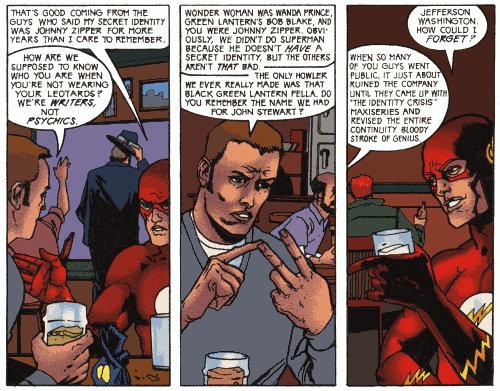 This one had the best of intentions but somehow ended up being more of the accident-at-the-mousetrap-factory variety. Graeme and I started with the idea of doing a year in review podcast and it morphed, as our conversations usually do, into a verbal catalogue of compulsion and fixation.
This one had the best of intentions but somehow ended up being more of the accident-at-the-mousetrap-factory variety. Graeme and I started with the idea of doing a year in review podcast and it morphed, as our conversations usually do, into a verbal catalogue of compulsion and fixation.

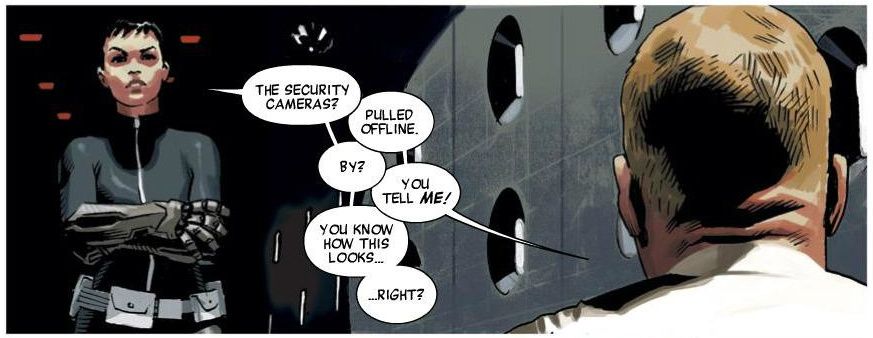
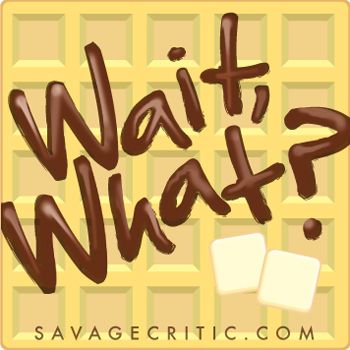
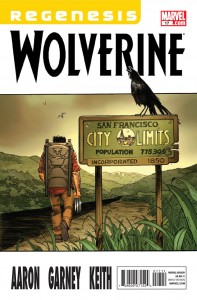
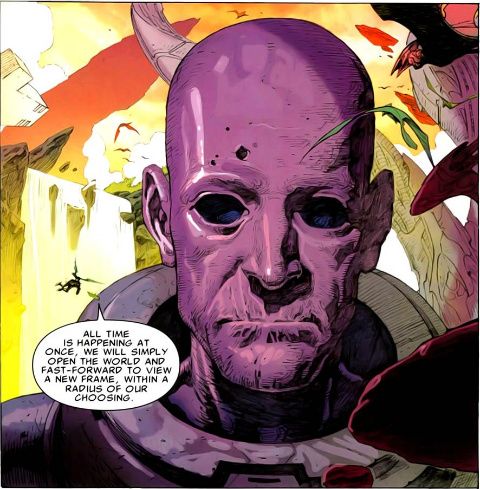
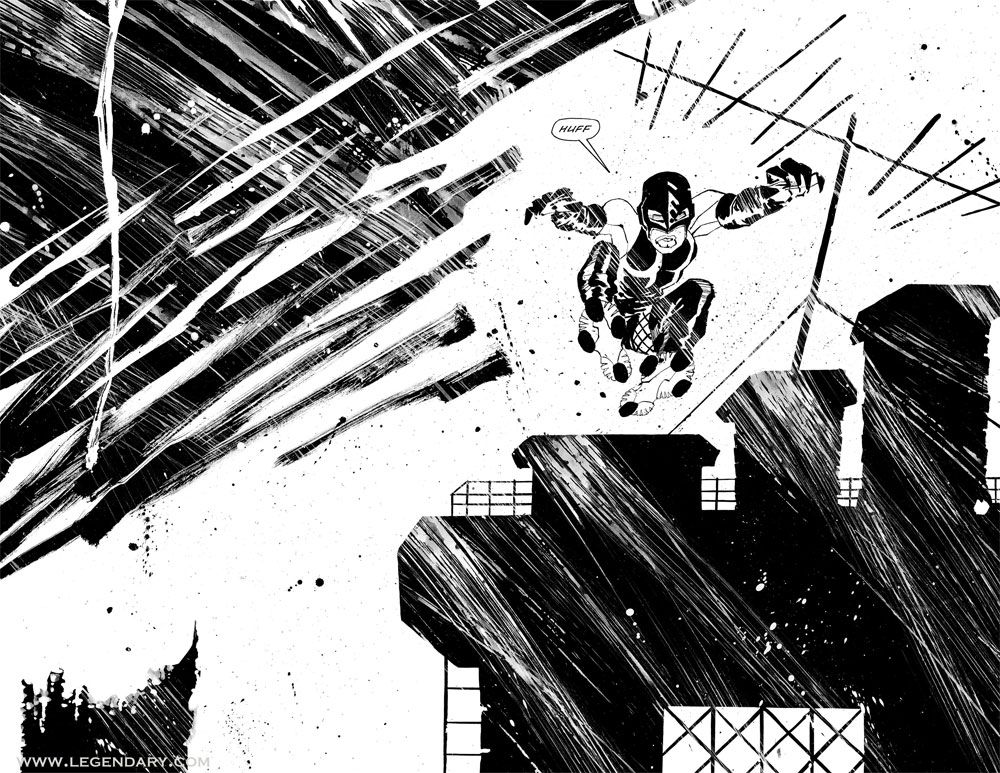

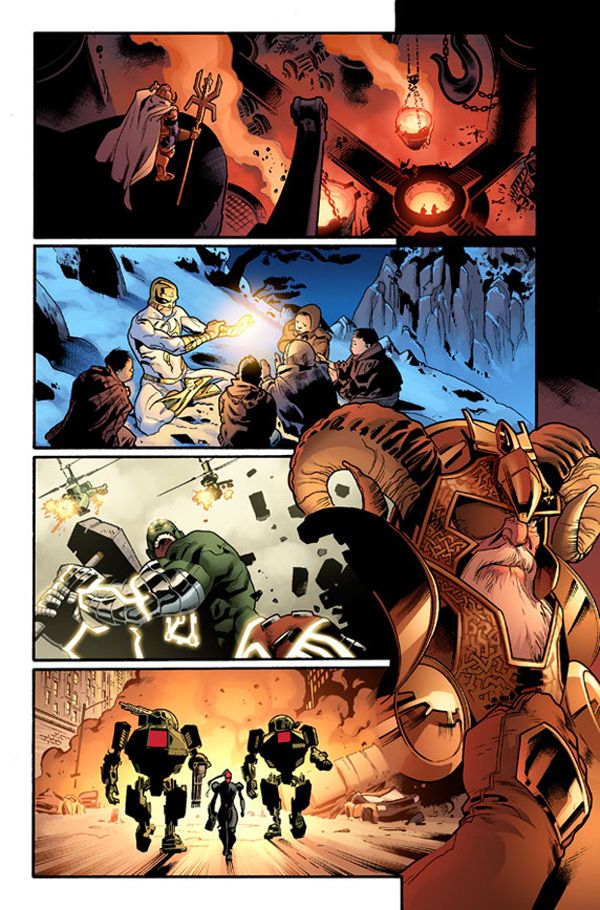
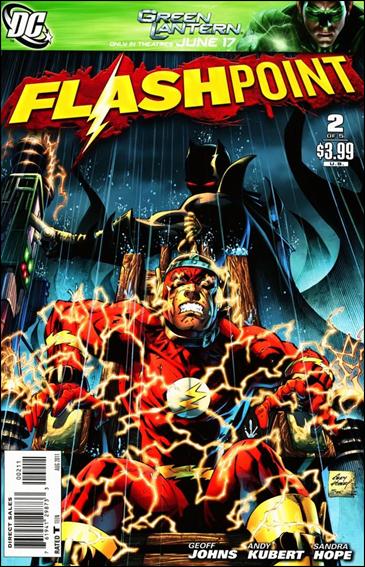
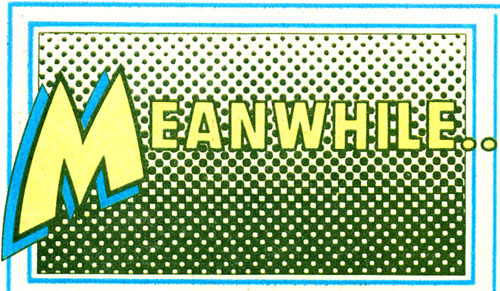



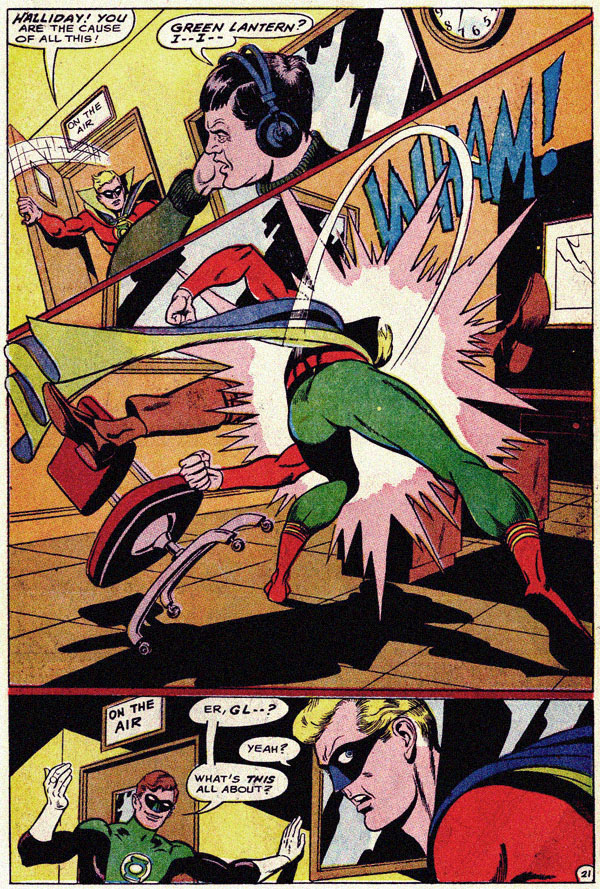



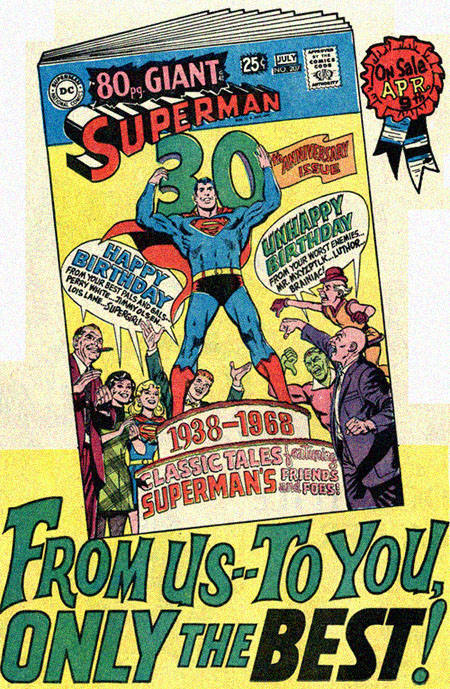





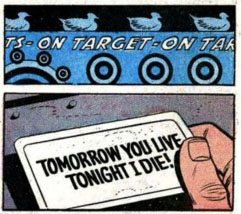
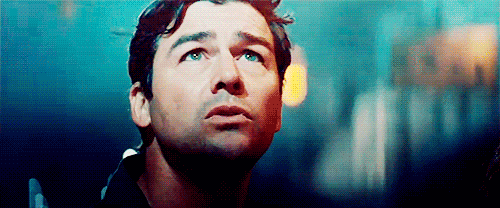


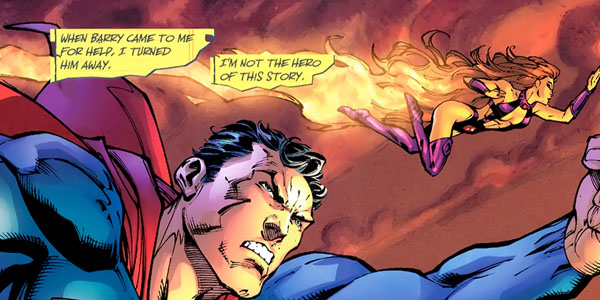





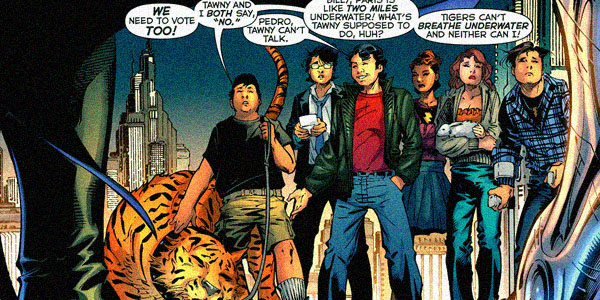
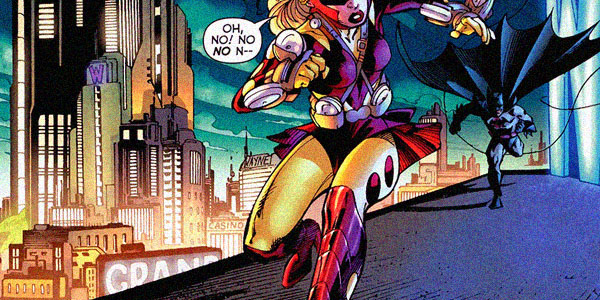
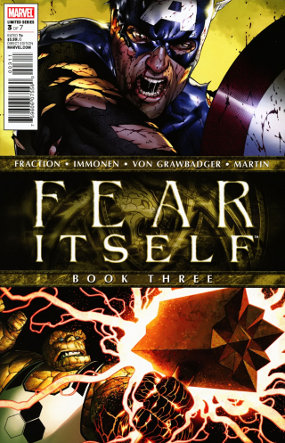




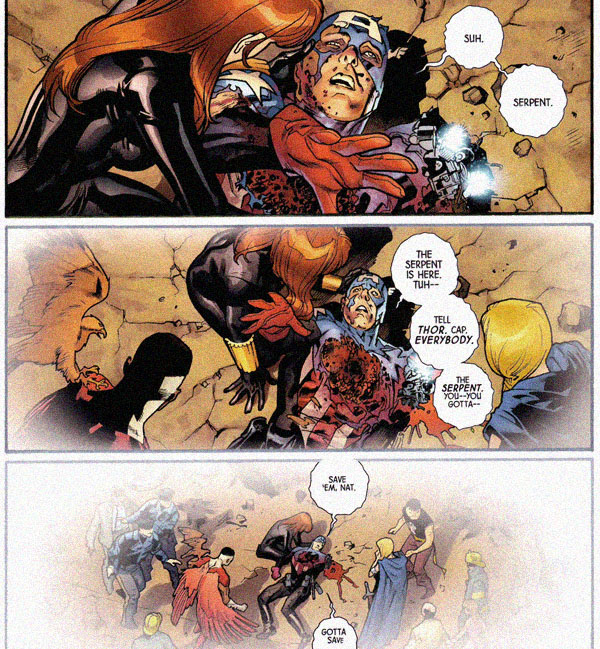
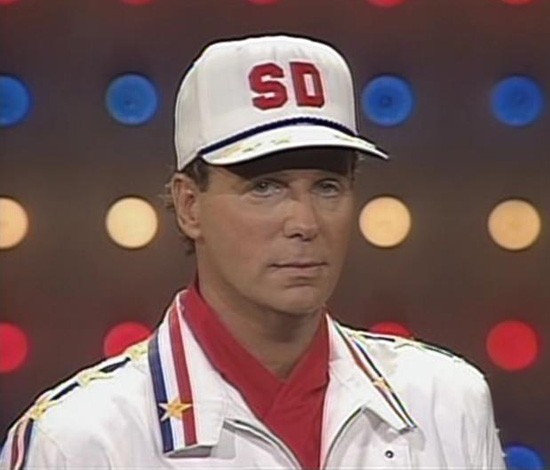
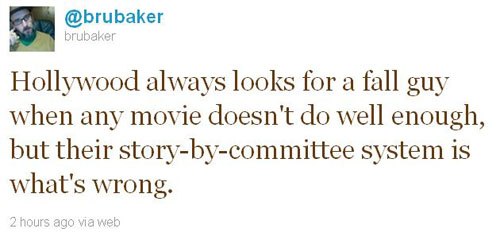
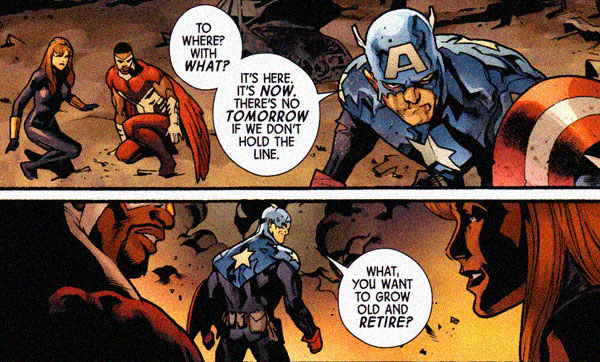


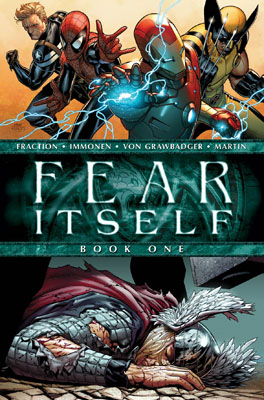



![An image of Iron Man, Steve Rogers and Thor from FEAR ITSELF #1. Quote from a recent interview with FEAR ITSELF's author promoting FEAR ITSELF #4: The scene next month [in FEAR ITSELF #4]... It's the first time that Iron Man and Steve Rogers and Thor have been in the same room in the series.](http://static1.squarespace.com/static/58c6f8b33a041115fb6baf1d/599ccf4de5a68b350fcf931a/599cd9cce5a68b350fd0e5ac/1503451596268/bakers-dozen.jpg?format=original)



















